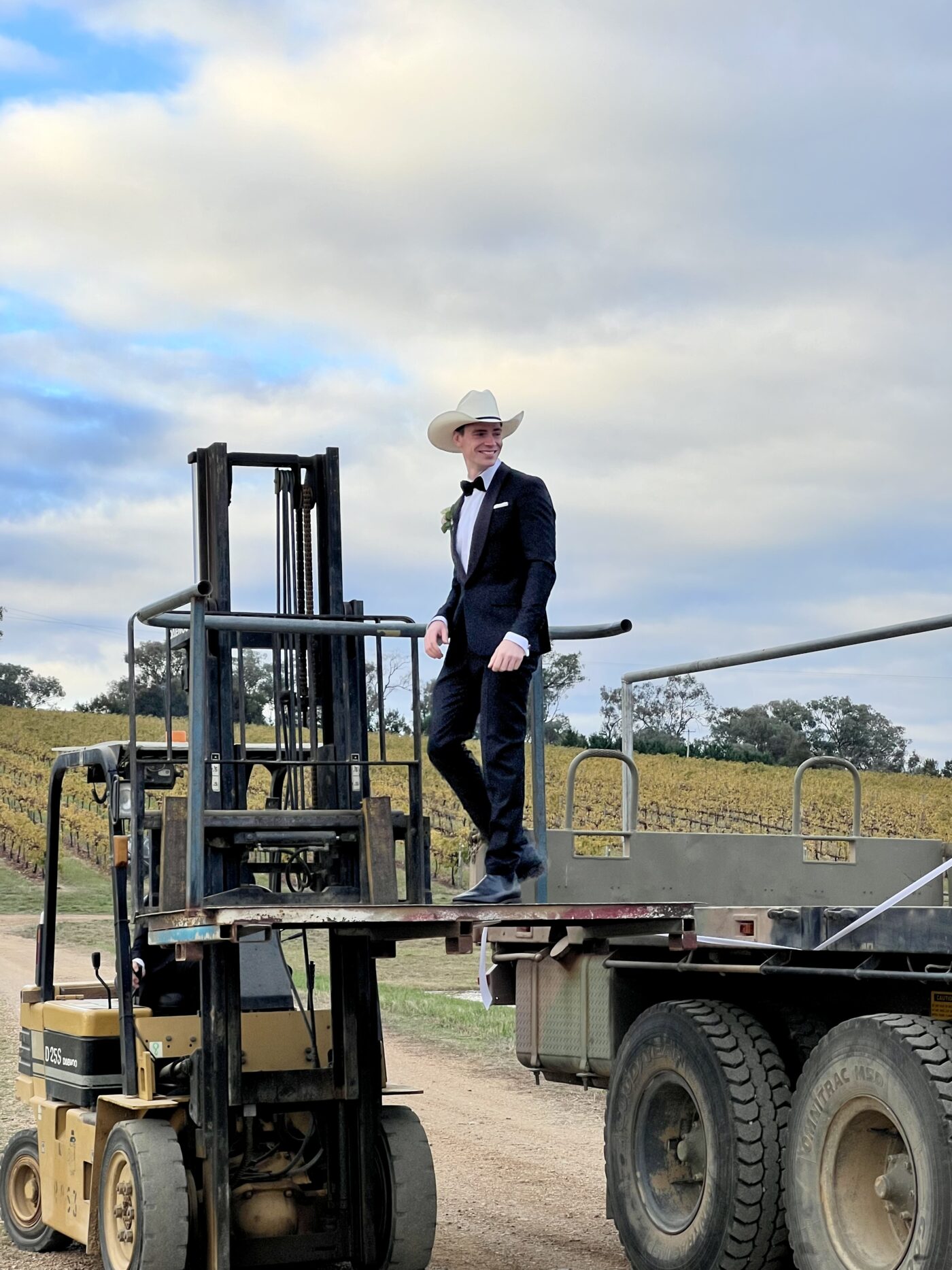6 minutes reading time
Financial independence is the end goal many investors dream of – the freedom to live life on your own terms.
Whether it’s buying a home, taking time off or travelling the world, reaching that point means having the flexibility to choose how you spend your time and money. But in a world where the cost of living keeps rising, financial independence can feel harder to achieve than ever.
In this piece, we meet three young investors using ETFs as a core part of their strategy to get there.
Please note these examples are provided for illustrative purposes only and is not a recommendation to adopt any investment strategy. It doesn’t take into account your objectives, financial situation or needs, so you should consider its appropriateness taking into account such factors, and consider seeking financial advice.
The PhD graduate who believes investing really isn’t rocket science

Source: Supplied
Like many young investors, Will’s investing journey started during the COVID pandemic when he was looking for something to do with his money.
“I read every book I could get my hands on about passive investing,” he said.
After a few reads, he realised this was something he wanted to do. By then, he had also worked out what kind of strategy he wanted to employ.
“It’s just time in the market. Invest in the index. It really is not rocket science. It’s super simple, and the stats show you that you will likely outperform the active investor.”
When he began his investing journey, Will was a PhD student. He says his scientific background gave him the confidence to back a data-driven approach.
“For someone with a science background, you’re going to look at historical data. You’re going to run numbers; you’re going to look at probabilities. And when I view investing through that lens, and especially by focusing on the passive broad based market index funding strategies, the outcome in my mind becomes quite clear. That’s what gave me the comfort I needed to take the approach I did,” he added.
Will’s approach hasn’t changed since. He runs what he calls an “extremely boring” core through Betashares Direct, combining a broad market Australian shares ETF with a broad market US shares ETF.
When all is said and done, Will wants to achieve financial security in the long term. For him, that means investing enough to generate an income.
“Financial security, at its extreme, effectively means that whatever income you earn now through your job could become secondary to the income you receive through your share portfolio. When you achieve that, a whole new world opens,” Will said.
The investor looking for a ‘hack’ to home ownership

Source: Supplied
Amy’s idea of financial independence is simple and single-minded – she wants her investments to help her save for a house deposit.
“Ideally, I don’t want to rent forever and pay someone else’s mortgage off,” Amy said.
While she doesn’t have a specific timeline, she is sure about what she wants her future home to represent.
“I’ve moved around a lot, so I suppose for me it would be a ‘settling down’ moment when I purchase a home. I’m hoping my investments now will add a little more capital to what I’ve got.”
To help achieve this goal, Amy owns several Betashares ETFs including Australian and global shares exposures. One of the ETFs she is particularly excited about is HACK Global Cybersecurity ETF .
“I am in the energy sector, and I know there’s a lot of investment from the energy sector into the companies held in HACK’s portfolio,” she said. “A lot of businesses have recognised that they can’t afford a cyber hack and that’s the reality.”
The other way Amy is seeking to achieve her goal is to be a disciplined saver. Taking a leaf from her Mum’s book, she started her own 100 day investing challenge.
“On day one, you put in $1. On day two, you put $2. On day three, you put $3. By the time you get to day 100, you would have saved $5,050,” she noted. “When I was adding $37, I was thinking that it’s just $37. I can survive without $37 today.”
“I think of it like 21st century Dollarmites.”
The DCA investor with just 3 ETFs in his arsenal

Source: Supplied
Victor’s investing journey started as a teenager, trading individual shares while learning the ropes through online forums. Now a few years older, he’s shifted to ETFs over single stock picking.
“It’s just ‘set and forget’ and makes sure that you are going to reach your goal. It also means you’re not required to have a second job analysing the market,” he said.
He currently holds a few Betashares ETFs: the A200 Australia 200 ETF and BGBL Global Shares ETF . He has since added an emerging markets ETF to his portfolio.
Victor thinks it is useful to have “at least some exposure” to emerging markets.
Victor’s approach has also evolved over time. He now dollar cost averages his contributions into just three ETFs, adjusting weightings as needed, with no current plans to expand his portfolio.
“I really believe in the beauty of keeping a very simple portfolio,” he said.
Victor’s big dream is like Will’s – to earn enough from investing to choose how much he works.
“It’s not as important to me to retire early but financial independence is very important. Building up a comfortable nest egg gives you a lot more options.”
Investing involves risk. The value of an investment and income distributions can go down as well as up. An investment in a Betashares fund should generally only be considered as part of a broader portfolio, taking into account an investor’s particular circumstances, including their tolerance for risk. For more information on the risks and other features of each Betashares fund, please see the relevant Product Disclosure Statement and Target Market Determination, available at www.betashares.com.au.

